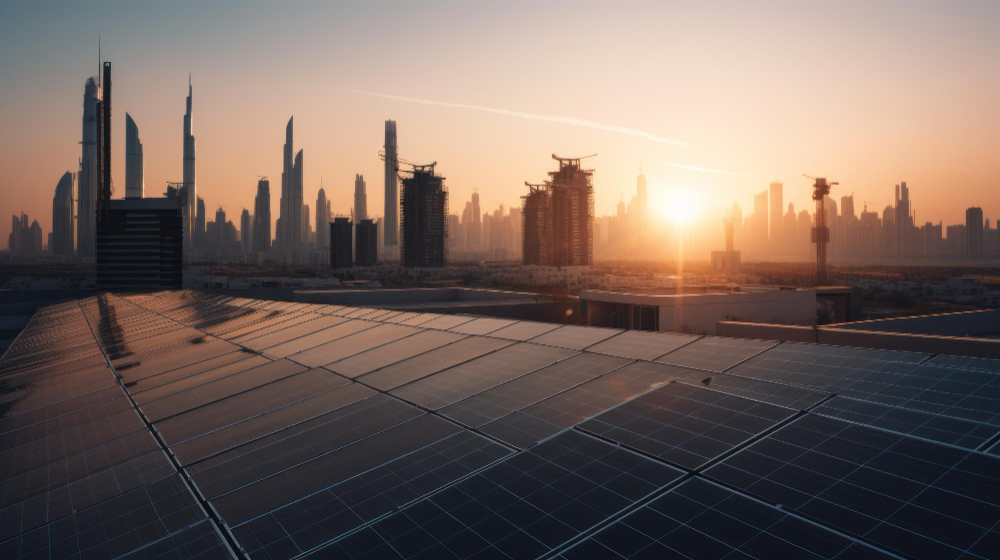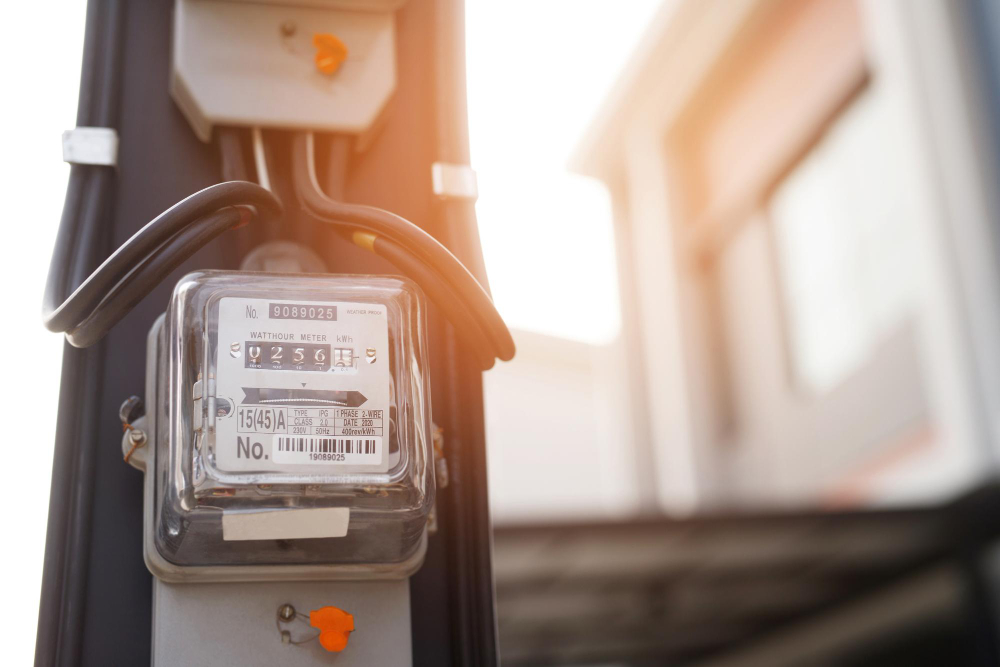
It is considered that rooftop solar panels, which produce clean and sustainable energy, can help residents in the northern Emirates save on month-to-month electricity expenditures.
The new program will offer rooftop photovoltaic systems to customers, including residential, commercial, and agriculture segments from EtihadWE, allowing them to generate solar power. The Ministry of Energy and Infrastructure (MoEI) and EtihadWE are working together to promote the use of sustainable energy in the northern Emirates and lay the basis for a future that is "energy-secure" through the Distributed Solar Systems (DSS) initiative.
How Does It Work?

The solar energy produced will be reabsorbed into the system, adding to the northern Emirates' total renewable energy supply. Consumers who contribute to the renewable energy system will receive lower energy bills even though they won't directly use the electricity their solar panels generate.
These installations are currently available to three primary sectors: industrial, residential buildings, and agricultural enterprises.
Undersecretary for Energy and Petroleum Affairs at MoEI Eng Sharif Al Olama stated, "Whatever investment is put into these panels, customers will get a return on their investment within two to three years, which is a very appealing investment," in a Tuesday interview with Khaleej Times in Abu Dhabi. The beneficiary will, after that, experience the advantages of solar systems. It will show up in their electrical bills, and they will get a fair bit of a decrease in their bills."
Olama emphasized the procedure and methodology created for this project and added that it is modelled after Dewa's Shams Dubai solar program, which uses the idea of "net metering."
Customers can install solar panels and generate electricity as a result, which will reduce their monthly utility expenses.
Olama continued, "Twenty megawatts is the goal for the year. We will, therefore, no longer be accepting applications once it reaches that point. Shams Bay is a successful initiative that has been running for a number of years. Thus, we spoke with Dewa. We use nearly the same strategy in the northern Emirates after receiving a list of approved makeup, contractors, and other suppliers.
"Our top priority is the consumers' health and safety. Aside from that, the applicant needs to abide by this list of authorized equipment and contractors. In order to obtain the NOCs, such as the municipality or even the Civil Defense, they must also simultaneously communicate with the appropriate authorities."
Consumers Will Have Two Meters

Participants in the program will receive two meters: one for tracking energy imported into the system and another for monitoring energy exported. The energy imported and exported will be compared each month. If excess energy is sent to the grid in excess of what is imported, it will be credited to the customer's account for consumption during the same year.
The entire procedure, from installation application, is anticipated to take no more than two or three weeks. Workshops and awareness activities will help interested clients obtain NOCs and ensure they have all the help they need.
"We set a cap of one megawatt or 10 percent of the connected load. We want to evaluate the situation technically and economically to determine the potential effects within the first year. Is the grid stable for that year, or are there any disruptions? Then, from an economic standpoint, what is EtihadWE's impact, and how does it help customers with their bills? Thus, we will conduct a thorough investigation and make additional choices after a year, Olama stated.
Solar Panel Installation by Certified Contractors
In keeping with the UAE Consensus, the project will assist the long-term goals of the UAE Energy Strategy 2050, which include raising the amount of clean energy generation to 32% and guaranteeing that the nation will fulfill its target of tripling its share of renewable energy by 2030.
A feasibility study and an evaluation of the technical and economic effects of connecting DSS to the grid preceded the project's start in July 2023. Together with MoEI, EtihadWE has created technical specifications and standards for the systems.
As the certified installer, EtihadWE will send out professional installers to install the solar panels, making sure they adhere to the most recent safety regulations.
"This major solar initiative marks an important milestone in EtihadWE's progress towards increasing renewable energy in the northern Emirates," stated Eng: Yousif Ahmed Al Ali, CEO of EtihadWE. We are adopting new technology to enhance our business processes, offerings, and customer support while demonstrating our dedication to sustainability.
The UAE's campaign for rooftop solar panels presents an excellent opportunity for consumers residential, commercial, and agricultural- to reduce their electricity costs and help ensure a more sustainable energy future. These photovoltaic systems tap the abundant sunshine in the region, increasing energy independence and reducing utility expenses. The adoption of solar technology will align with national aspirations to promote renewable energy and reduce carbon footprints as the UAE continues its journey of diversifying its energy sources while adhering to set environmental targets.










Comments (0)
Leave a comment